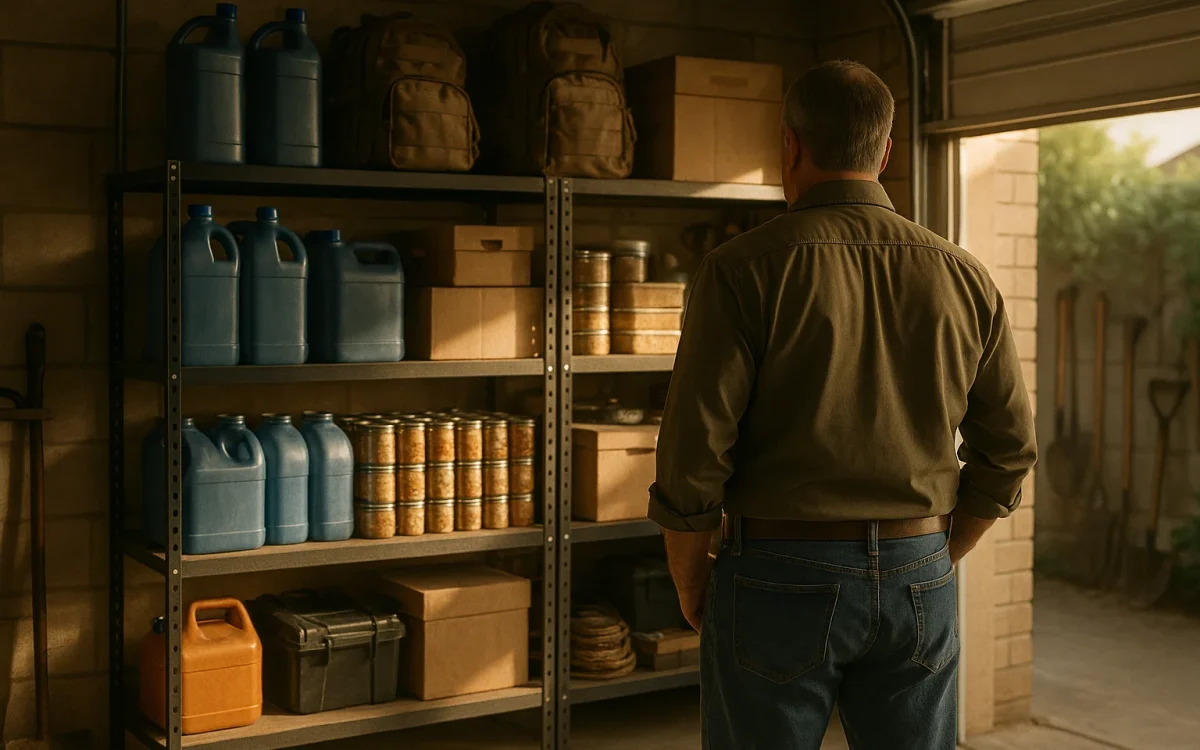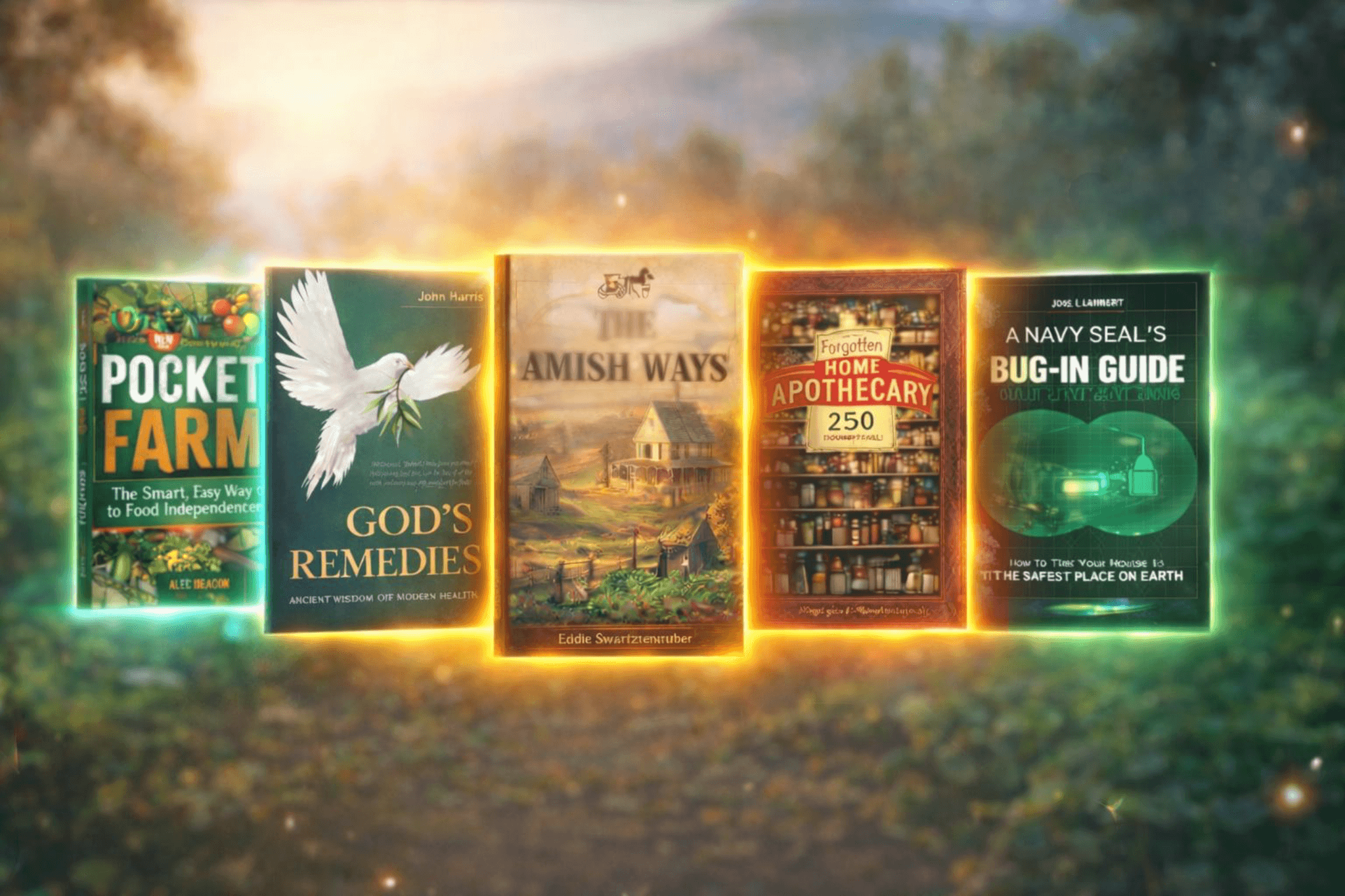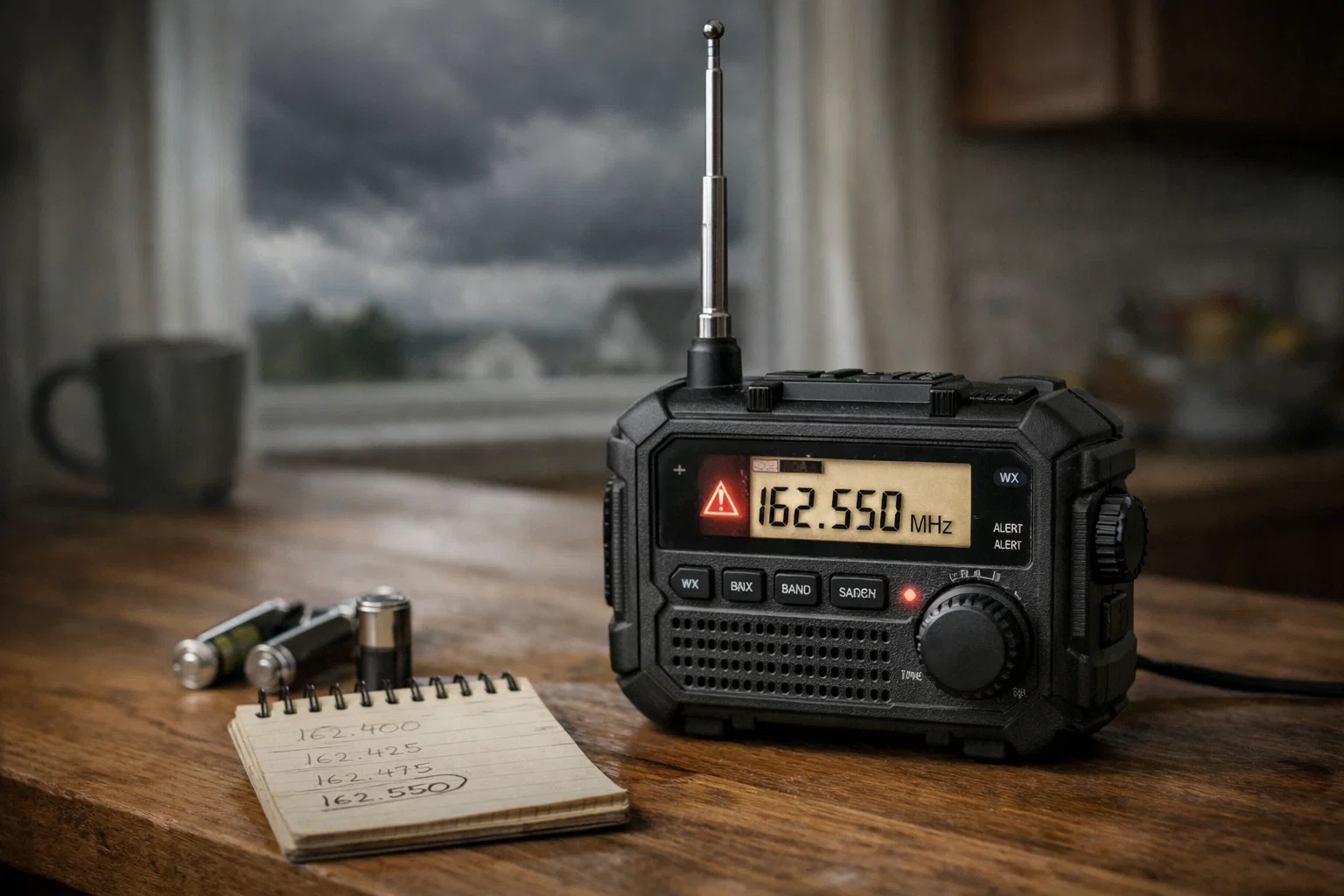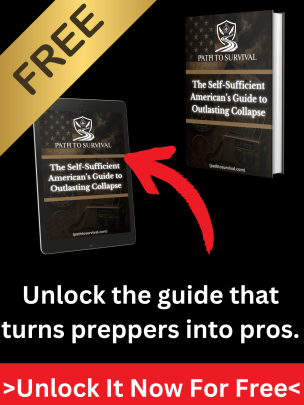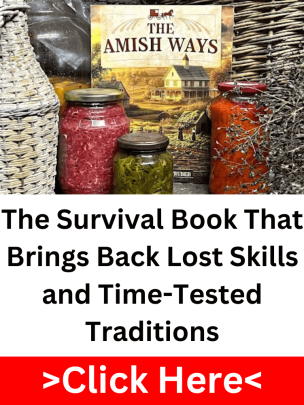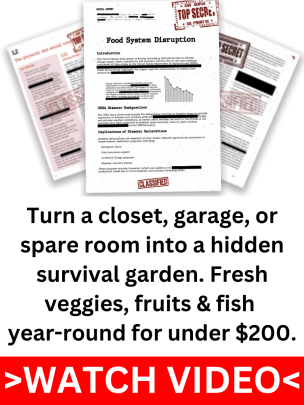You’ve been at this a while. Stockpiling, learning the skills, running the drills. But lately… it’s feeling like more of a chore than anything else. What used to give you peace of mind now just feels like another job on the list. Maybe your knees start barking after moving gear around all day. Maybe the pile of supplies in the garage makes you sigh instead of feel proud. Or maybe you’ve just had one of those moments where you stop and think, am I burning out?
If any of that sounds familiar, you’re not alone. A lot of folks hit 50 and start feeling the weight, not just in the body, but in the head and heart too. The constant need to stay ready, to be on top of it all… it wears you down after a while. Doesn’t mean you’re doing it wrong. It just means it’s time to adjust the way you prep so it actually works for the life you’re living now.
The Prepping Burnout No One Talks About
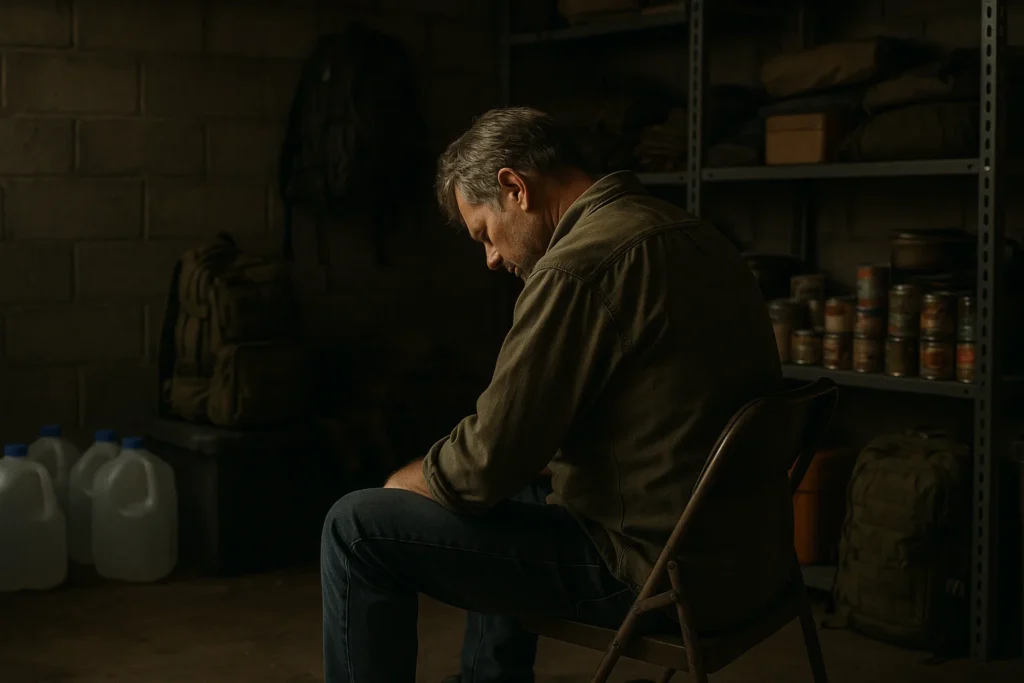
Burnout doesn’t show up all at once. It sneaks in slowly, missed prep days, skipped inventory checks, that low-level frustration when you walk past your gear stash and feel more pressure than peace. Maybe you’re tired of always being on alert. Maybe you’ve been juggling family, work, health, and prepping, and it’s starting to stretch you thin. One day, you just stop caring about the latest solar charger or freeze-dried meal deal. That’s the burnout creeping in.
Here’s the thing, feeling worn down isn’t weakness. It’s a warning light. And it’s one too many preppers ignore. When we’re younger, we’re all hustle, staying up late packing bug-out bags, stacking cases of water in the garage, lifting like we’re still 25. But prepping after 50 is a different game. Your body, your time, your energy, they’re not what they used to be, and pushing through like you always have can backfire fast.
This isn’t about giving up, it’s about changing course. Burnout is a sign that your system needs a reset, not a shutdown. You can still stay ready, but you’ve got to prep smarter. That means shifting from go-hard-all-the-time mode to a pace you can actually maintain for the long haul. Because if you’re going to survive what’s coming, you can’t afford to wear yourself out before the real trouble even starts.
Protecting Your Most Valuable Resource, Your Energy
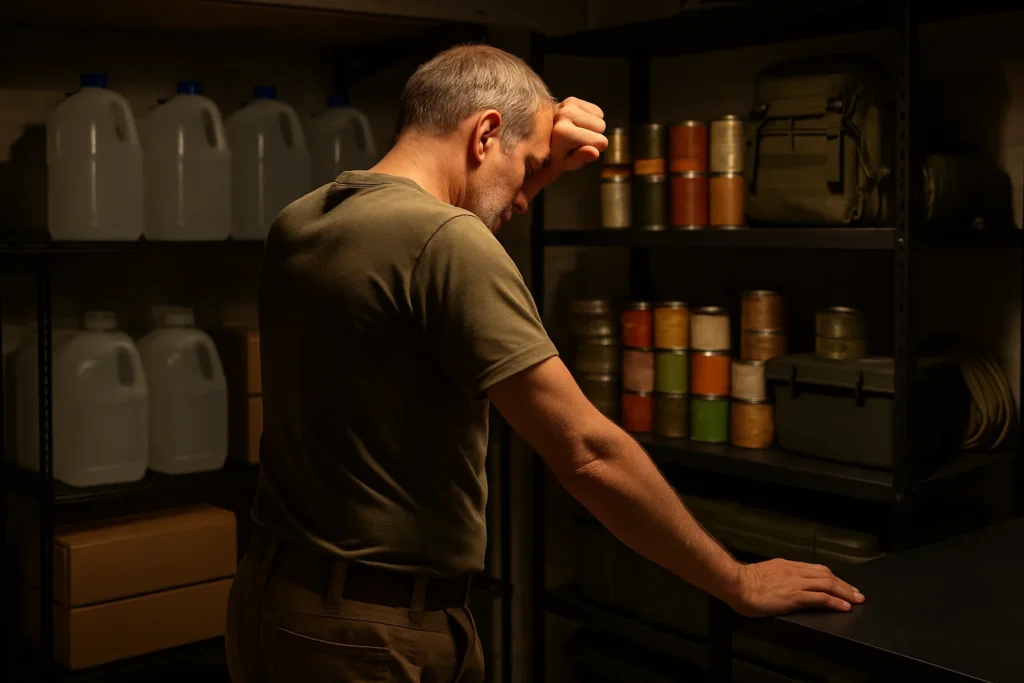
When you’re younger, it’s easy to think your most important prepping resource is gear or food. But once you cross into your 50s, that changes fast. Energy becomes the currency. The reality is that most folks don’t notice how much harder the physical side of prepping hits until one day, the body just doesn’t bounce back like it used to. Stacking supplies, fixing gear, hauling water, it all adds up, and the drain on your energy starts to show.
The problem is, it’s not just the big stuff wearing you down. It’s the everyday things you might not even think about, sleep that isn’t deep enough, a couple glasses of water short every day, pushing through tasks without giving your body time to recover. Most preppers over 50 are still running on routines that made sense when they were younger, not realizing that their daily habits are slowly bleeding their stamina.
So what’s the smarter move? Timing and pacing. Instead of marathon prep weekends that leave you wiped for days, break it up into smaller sessions. Do inventory in the morning when you’re fresh. Save physical tasks like rotating food or organizing bins for cooler parts of the day. Build rest into your planning, yes, even naps. That’s not laziness, it’s tactical.
If you want to stay in this game for the long haul, you’ve got to treat your energy like your most precious asset. Because it is. Energy management prepping over 50 isn’t about doing less, it’s about doing what matters, when it makes the most sense for your body. And if you can get that right, everything else, mental sharpness, motivation, consistency, falls into place.
Movement That Keeps You Ready Without Wearing You Out
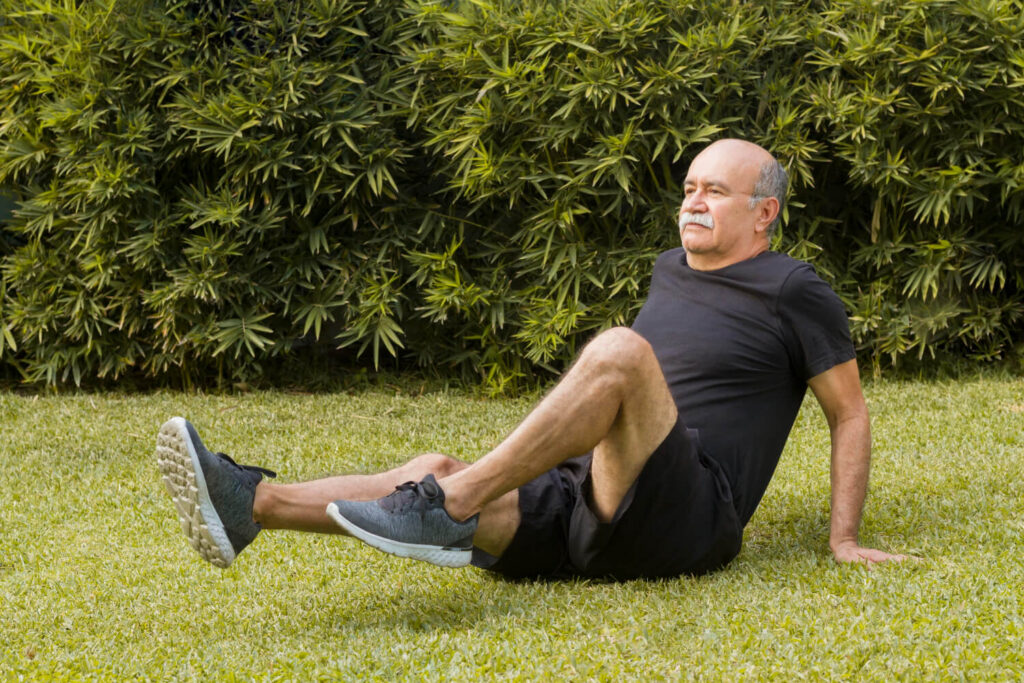
One of the biggest mistakes folks make as they age is trying to train the same way they did in their 30s, fast, heavy, and hard. That might work for a while, but sooner or later, the joints start barking, the recovery time stretches out, and the risk of injury goes up. If you’re serious about prepping after 50, it’s time to shift from high-impact workouts to something that actually supports your long-term readiness.
You don’t need to beat yourself up in a gym. You need practical, prepping-friendly movement that keeps you mobile, strong, and functional. Think daily walking drills with a weighted backpack. Practice lifting and carrying water jugs or stacking supplies with proper form. Stretch before and after every session. Even five minutes of light joint work, ankle rolls, shoulder circles, hip mobility, can keep you ready to move when it counts. The goal isn’t to bulk up, it’s to stay capable without breaking yourself down.
Before we jump into simplifying your load, here’s something worth mentioning. If you’ve ever looked at how the Amish live, you’ll notice they’ve mastered the art of doing more with less, no burnout, no cluttered garages full of gear, just time-tested systems that work. The Amish Ways book breaks down their off-grid strategies, food preservation techniques, and day-to-day routines that make survival a lifestyle, not a stress point. If you’re looking to prep smarter, not harder, this might be one of the most practical resources you’ll come across.
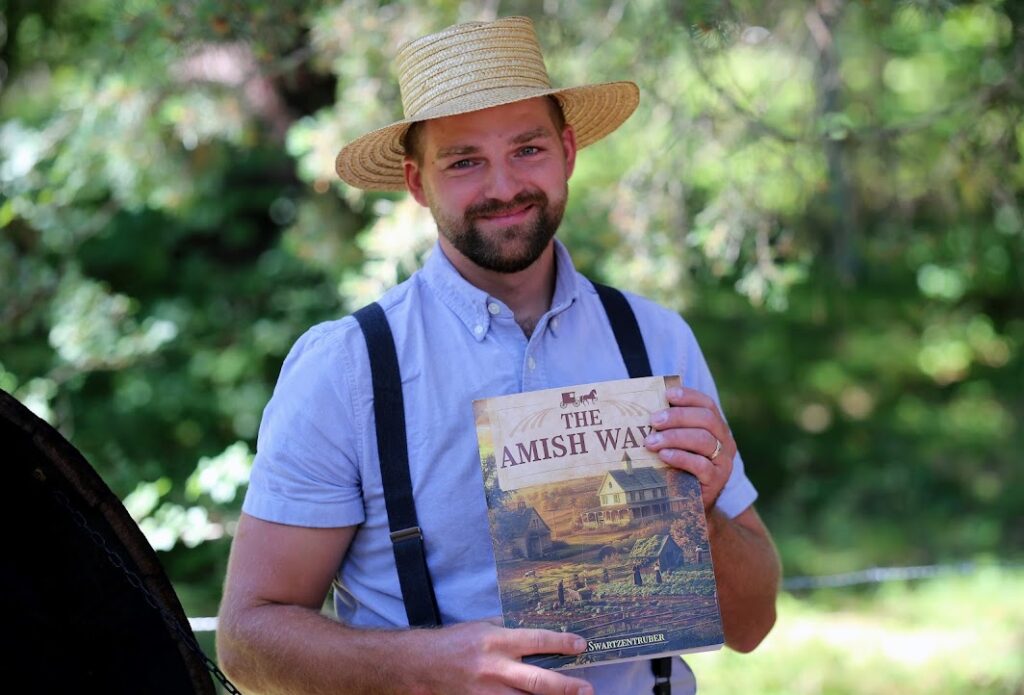
Simplify the Load—Physically and Mentally
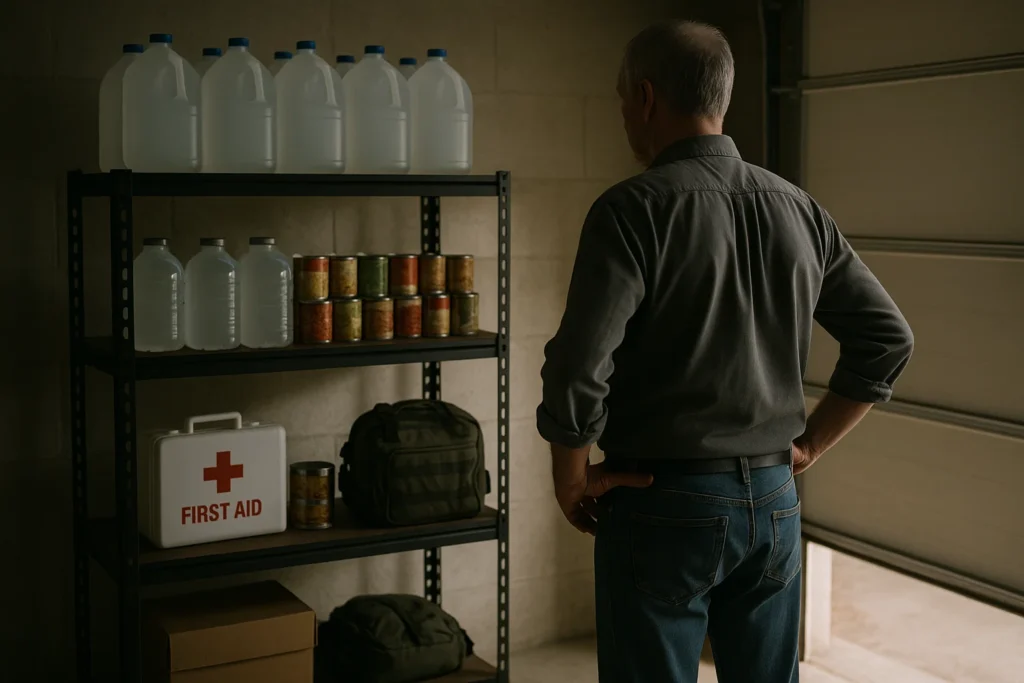
The longer you’ve been prepping, the more stuff piles up, gear, plans, lists, backup plans for the backup plans. At some point, it all becomes noise. One of the most underrated skills for seasoned preppers is learning what to let go of. You don’t need ten types of fire starters or three versions of the same water filter. You need a system that works and doesn’t drain you to maintain.
Mental clutter is just as heavy as physical gear. Constantly running through worst-case scenarios in your head, EMP, flood, looters, wildfire, can wear down your focus. The truth is, prepping without structure turns into anxiety. Having a rotation schedule for food, a quarterly gear audit, or a set time each week to check supplies keeps your brain from burning out. It’s not just practical, it’s peace of mind.
That’s what sustainable prepping for seniors really looks like. You’re not racing to do everything anymore. You’re building a system you can actually live with. Less “go-go-go,” more “what works for the long haul.” A simpler, smarter load means fewer mistakes, less stress, and a clearer head when real trouble shows up.
You’re Not Alone—Why Prepping With Others Keeps You Sharp
It’s easy to fall into the mindset that you’ve got to handle everything yourself. A lot of us grew up that way, just get it done, no help, no fuss. But the truth is, going it alone can wear you out faster than anything else. There’s no shame in having someone to lend a hand, whether it’s stacking firewood, double-checking your med supplies, or just talking through ideas. That kind of support matters more than folks realize, especially as the years add up.
If you really want to keep going strong prepping past 50 without burnout, start thinking more like a team player. Doesn’t mean you’re giving up control, it just means you’ve got backup when things get heavy. Maybe it’s a buddy you meet at the range once a week, or a neighbor who gardens like a pro. Either way, working with others keeps you sharp, keeps things moving, and honestly, it just makes prepping feel less like a grind.
Rest Like It’s Part of the Plan
When you’re prepping after 50, rest isn’t optional, it’s strategy. Sleep, downtime, and even small hobbies are what recharge your body and clear your head. If you’re constantly running on fumes, you’re not ready, you’re just worn out. Making room for recovery isn’t being lazy, it’s making sure you can think straight, move smart, and stay sharp when things go sideways. Rest is part of the plan now. Treat it like gear you can’t go without.
Truth is, prepping after 50 isn’t about trying to keep up with what you did in your 30s. It’s about finding a rhythm you can actually live with. You’ve got nothing to prove. You just need to be ready in a way that works for your life now. That means listening to your body, taking breaks when you need to, and not letting the stress of doing everything all at once wear you down.
So take a breath. Toss out what’s not useful anymore. Do a little at a time, and if you’ve got good folks around you, lean on them. This whole thing isn’t a race. It’s not about being the toughest guy on the block. It’s about staying in it, year after year, without falling apart. That’s what really makes the difference when things go south.

